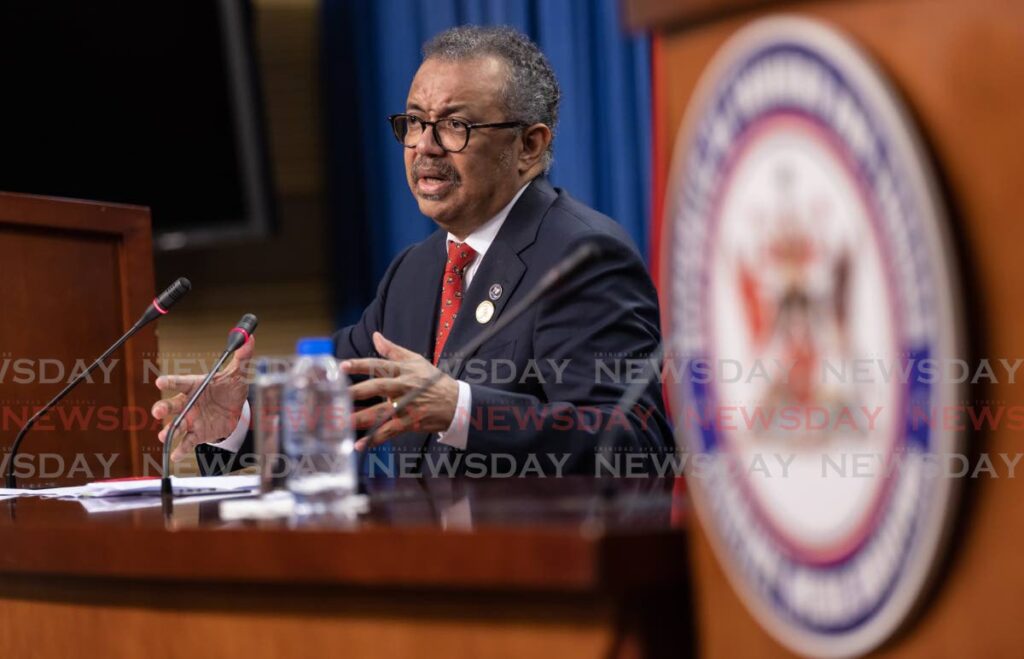Championing vaccine equity

On Thursday, the Prime Minister personally thanked Dr Tedros Adhanom Ghebreyesus for his work as the leader of the World Health Organisation (WHO) in the global response to covid19.
Noting that TT learned about the scope and dangers of the coronavirus along with the rest of the world, he said that while the country's response to the pandemic was not perfect, it was very good.
Dr Tedros was re-elected unopposed to the leadership position for another five-year term in May 2022.
For his part, the WHO director general saluted the TT response to the pandemic, noting of Dr Rowley's leadership that "The tough decisions he took helped prevent infections and saved lives."
Emphasising that the WHO's role is only to advise and offer information gathered from global sources supported by peer analysis; Dr Tedros emphatically denied any WHO role that would interfere with the sovereignty of nations and their freedom to choose their own responses to health matters.
Dr Tedros recalled the "vaccine apartheid," which resulted in an oversupply of vaccines during to pandemic in high income countries while poorer nations struggled for supply.
Small-island developing states of the Caribbean region should develop a unified front to represent their interests on critical matters as vaccine allocations, he urged.
TT should be part of the Pandemic Accord to champion vaccine equity and encourage a collective regional voice in the demonstrably critical matters of health that too often overlook the small populations of the Caribbean archipelago.
TT work with the global south to improve drug and vaccine production capacity.
Dr Tedros also noted the high incidence of non-communicable diseases (NCDs), global killers that loom large in the local landscape.
NCDs such as heart disease, stroke, cancer, diabetes and chronic lung disease account for more than 62 per cent of TT deaths annually, with more than 75 per cent of those fatalities among people under 70.
Diabetes is a particularly deadly diagnosis, increasing as a cause of TT mortality by 32.6 percent since 2009.
A 2016 PAHO survey of TT health vulnerabilities suggests that as much as 46 per cent of the population is obese and as many as 76 per cent acknowledge that they don't exercise enough.
One of the troubling mortality statistics of deaths caused by covid19 was the number of deaths attributed to 'co-morbidities,' NCD-related conditions that increased the vulnerability of covid19 patients. Diabetes proved to be the most prevalent factor in increasing patient mortality risk.
With the public health system returning to normal, and perhaps improving, this enhanced understanding of the threats that NCDs pose to health should push the government to amplify its preemptive health measures and lead the region in joining the Pandemic Accord.


Comments
"Championing vaccine equity"